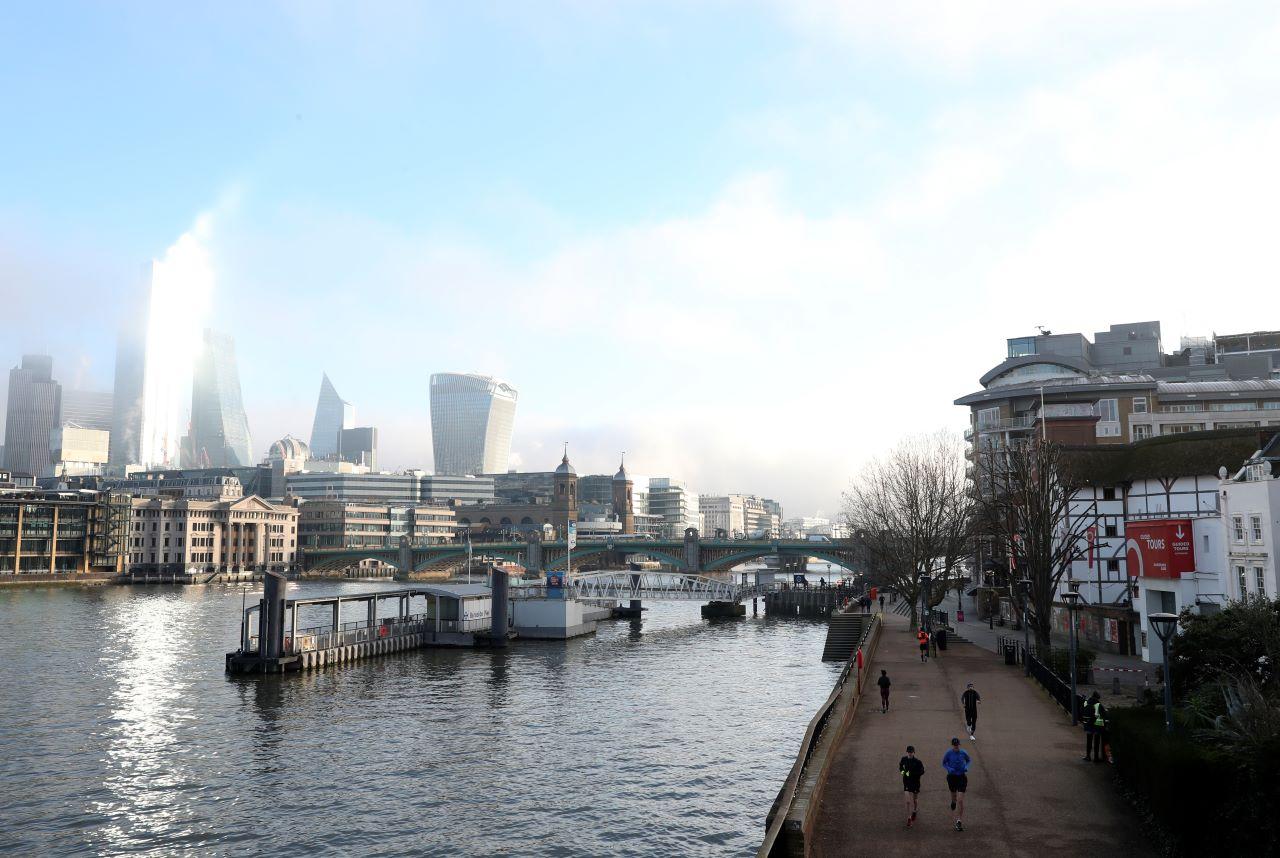Southern England readies temporary mortuaries due to Covid-19 surge
The surge in fatalities and cases has placed acute pressure on hospitals, their mortuaries and the funeral industry.
Just In
A temporary mortuary in the south of England has started receiving bodies from overflowing hospitals and authorities in London are preparing a similar facility as the area grapples with a surge in coronavirus deaths.
Britain is grappling with a new Covid-19 variant that has seen cases soar to record highs. On Friday, 1,325 deaths were registered over a 24-hour period – the most since the start of the crisis.
The surge in fatalities and cases has placed acute pressure on hospitals, their mortuaries and the funeral industry.
The new strain, which is believed to be up to 70% more transmissible, was first identified in the south of England.
In the county of Surrey, the local council said 170 bodies, more than half of which had been Covid fatalities, were being held at one temporary morgue near the town of Epsom after hospital capacity was overwhelmed.
A spokesman with Surrey’s Local Resilience Forum, created to coordinate the authority’s response to the pandemic, said the county would be left in “real difficulty” if the 1,400 capacity at the temporary morgues is exceeded in the coming weeks.
When the mortuary at the defence rehabilitation centre at Headley Court was opened in March last year, it had 700 bodies pass through it over 12 weeks until May.
“Since Dec 21, after just two-and-a-half weeks, they have had 300 bodies go through it,” the spokesman said.
In London, health authorities have said in some areas as many as one in 20 people currently have coronavirus – well above a national average of one in 50.
Preparations have begun on a new temporary mortuary near Breakspear Crematorium in northwest London to “supplement existing capacity” a local government spokesman told AFP.
The makeshift facility has not been brought into action.
Other temporary morgues, erected at the start of the pandemic, had not been required during this second wave, he added.
“Mortuaries across London are coping and cooperating to relieve localised pressures, and funerals are continuing to be held across the capital,” the spokesman said.
Massive influx
Deborah Smith, a spokesman for the National Funeral Directors Association, told AFP discussions about the need for the further use of temporary morgues was ongoing across the whole of the UK.
She said three pressures – the spike in Covid-19 cases, the normally higher rates of mortality in the winter months generally and the likelihood of illnesses amongst funeral staff – could all potentially limit the industry’s capacity to deal with the deaths.
That would have a further knock-on effect on mortuaries she added.
“The numbers are higher, the sense of unknown is greater,” Smith explained.
“We don’t know for how long the numbers will keep building, before they fall away again.”
Siraj Qazi is the manager of Ghousia Funeral Service, a mortuary serving the Muslim community in and around the town of Luton 32km north of London.
He said in the last month, the number of deaths in the community had started to increase. Over two weeks, he said there had been a “massive influx”.
“We are doing funerals daily and the deaths that we are dealing with now are predominantly back to Covid-19,” Qazi said.
Levels were similar to those seen during the March and April peak of the first wave last year when his firm was almost overwhelmed.
“I think we’re going have to keep an eye on things and see how it goes in the next two weeks or so,” he added.
Britain on Saturday said it had recorded over three million coronavirus cases since the pandemic began last year.
The full death toll now stands at more than 80,000, one of the highest in Europe alongside Italy.
Subscribe to our newsletter
To be updated with all the latest news and analyses daily.
